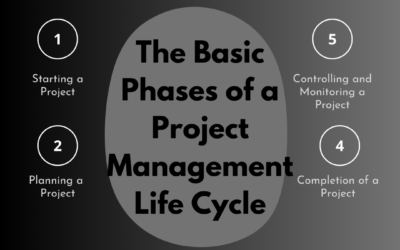
It is advantageous in many situations, including corporate management, to be able to correctly foresee future trends and events. Forecasting is significant since there are numerous applications for it.
Estimating a new business venture’s likelihood of success
Proper forecasting can disclose important information when beginning a new firm that could affect the future performance of the enterprise. Forecasting helps entrepreneurs foresee factors like the intensity of the competition, the potential for demand for a good or service, and the trajectory of the industry. It also discloses some of the dangers and uncertainties that a new business faces.
Calculating the cost of living
One of the most crucial applications of forecasting is determining a company’s future financial needs. By projecting future sales, the capital required for future product development, the costs of future expansions, and other expected expenses that are used to estimate future costs, it can assist a firm to determine its financial future.
Ensuring the consistency of the company’s operations
Good forecasting can provide key insights into future earnings and expenses. The management of the company may develop more effective and precise plans for the future by having an estimate of the money coming in and going out of the organisation over a specific time period.
Helping managers make the correct decisions
Accurate forecasting is used to inform a sizeable amount of management decisions. Depending on the precise form and purpose of the organisation, the majority of organisations, regardless of size, confront a number of possible uncertainties, such as seasonal peaks and falls in sales, changes in personnel, and fluctuations in raw material prices. The information managers need to make wise decisions about the future of the firm is mostly provided by forecasting.
Raising the chance that a business effort will succeed
A company’s performance frequently hinges on precise margins and effective fund allocation. Important metrics, such as the number of raw materials required, the appropriate budget for each department of the organisation, and the number of upcoming sales, may all be predicted via forecasting. Depending on the sort of firm and the anticipated statistics, these figures assist management in allocating finances and resources and giving some products or services higher priority than others.
Developing practical future plans
Forecasting is a crucial component in creating practical and realistic plans because every planning entails the use of forecasts. Long-term and short-term planning alike strongly relies on forecasting, which establishes a direct connection between good forecasting and effective planning.
Encouraging collaboration at work
The company’s department managers from every division, as well as other employees, must coordinate and work together to gather and analyse the data needed for forecasting. This turns the entire process into a collaborative effort, fostering greater cohesion and team spirit.
Assisting a business to grow
Forecasting provides managers with the knowledge they may utilise to identify any process flaws inside the firm. The company’s managers have the necessary instruments to address any weaknesses before they have an impact on profitability by anticipating future flaws.




